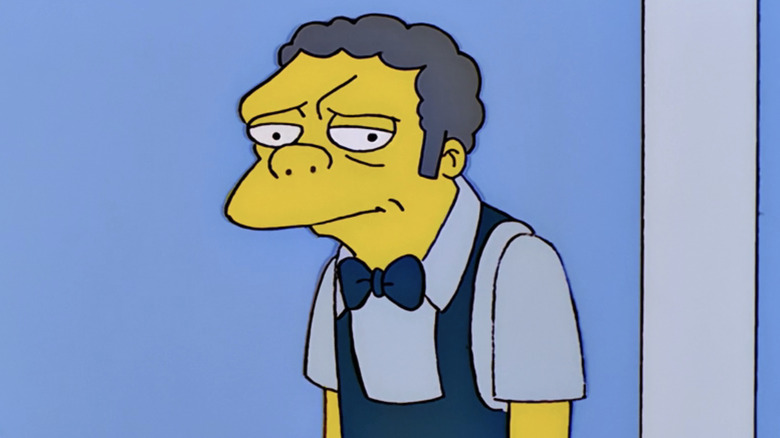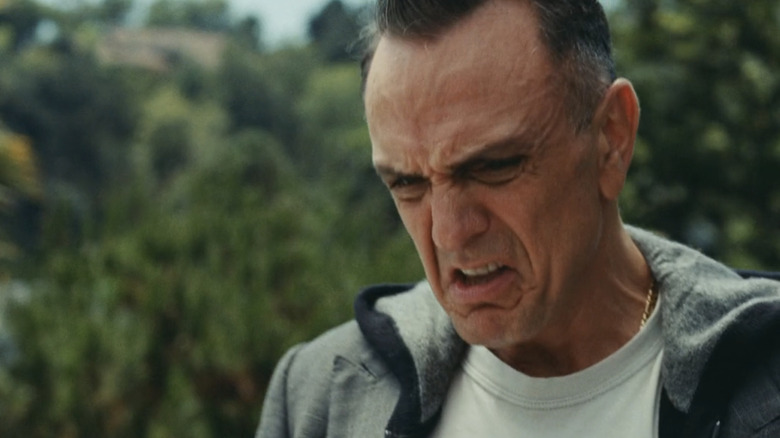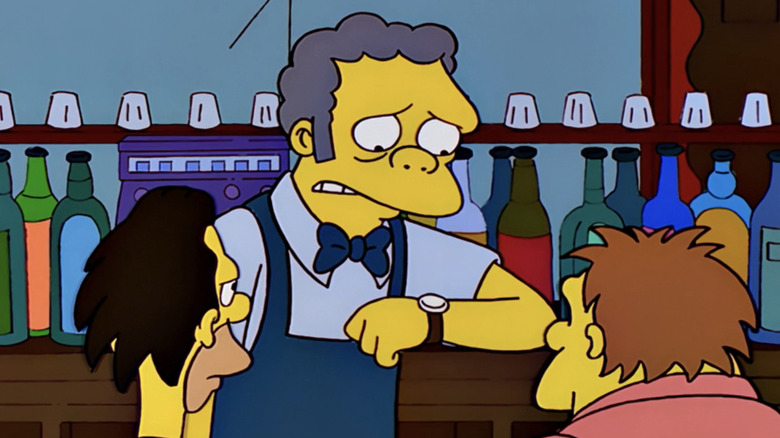A Simpsons Voice Actor Tested Out His AI Replacement And It Didn't Go Well
Whether we like it or not, AI is an increasingly pervasive part of modern life. Whereas only a few years ago discussions of AI seemed to refer to some distant future in which a Skynet-like super-intelligence would become self-aware, we suddenly find ourselves surrounded by chatbots, AI video and image generators, and a wholesale embrace of the technology by media companies. As a result, writers and actors were forced to strike over Hollywood's initial refusal to regulate the technology, and thankfully both strikes ended with protections against AI being well-established. But somehow it still feels like we're very much creeping towards a garbage future populated by AI-created films filled with virtual actors based on the stolen likenesses of established stars.
Another result of this rapid rise of AI is that Hollywood voice actors are now trapped between peril and possibility. Voice recreation technology is good enough that we have a hard time telling whether a Drake diss track is, in fact, coming from the real Kendrick Lamar, or whether Adrien Brody's Hungarian accent in "The Brutalist" is his own speech or AI "enhanced" dialogue produced by the Respeecher program. AI speech has been used in more flagrant ways, too, with Morgan Neville admitting to using an AI model of the late Anthony Bourdain's voice for parts of his documentary "Roadrunner." We've even seen entire standup specials made using an AI voice model of the late comedian George Carlin — all of which simply provides more evidence that we'll soon be surrounded by virtual approximations of the media we once loved.
Against this dismal backdrop, veteran "Simpsons" voice actor Hank Azaria has now tested out the technology that may one day take his job, and thankfully, it didn't go all that well.
Is AI voice acting an inevitability?
At the end of 2024, we saw one of the longest-running anime series of all time, "One Piece," suffer a big shakedown that could very well come for "The Simpsons" next. Having run for 25 years, the anime isn't quite as seasoned as its U.S. counterpart, which now has 35 years under its belt, but it's long enough to see voice actor Kazuki Yao officially announce his retirement in December 2024, citing health issues. His official replacement, Subaru Kimura, was announced soon after.
That followed Milhouse voice actor Pamela Hayden announcing her retirement from "The Simpsons" after 35 years in November of that same year. The one saving grace here was that both actors were recast instead of replaced by AI voice models. But once again, the specter of such technology haunted both announcements, especially since the youngest members of the "Simpsons" cast are Hank Azaria and Yeardley Smith at 60 years old, and the oldest, Harry Shearer, is 81. What happens when they, too, retire? After all, at this point "The Simpsons" seems like it could go on forever. The truth is that, were such a thing to happen, AI would not only likely be a viable alternative to recasting for the studio that produces the show, it would be a cheaper and quicker one, too. Perhaps even worse, the tech might be good enough at that point to evade fan detection.
For now, though, it seems AI voice acting has a ways to go before it can actually replace these beloved performers. Azaria, who voices hundreds of characters on the show including Moe, Professor Frink, and Chief Wiggum, recently stopped by the New York Times to get a sense of how close he actually is to being replaced by an AI voice model, and it should come as a relief to anyone even a little uneasy about such a prospect that his job is safe for now.
Hank Azaria isn't convinced he'll be replaced on The Simpsons ... for now
During his NYT visit, Hank Azaria recorded short monologues as various "Simpsons" characters and listened back to the AI program's attempt to recreate each voice. He wasn't impressed. The very first attempt, which saw the actor record lines as Moe and listen back to a newly-generated snippet from the AI, prompted him to react with, "That was way off." Indeed, though the model did a decent enough job of impersonating Azaria's Moe, it lacked what the actor called the "gravel" required to do so convincingly. "If we were trying to sound like a robot," he said, "that would be a pretty good version of what we were trying to do."
It should be noted that, were Disney to decide on using AI voice modeling to replace "The Simpsons" cast, the tech would likely be fed hundreds of thousands of line readings, which would conceivably allow it to hone its performance to something much closer than what Azaria and the NYT produced. Still, it's at least nice to know that this particular experiment wasn't all that convincing.
Ultimately, Azaria dismissed the AI tech as being incapable of replicating "a humanness" that "involves a character's motivation, certain emotions, subtleties of physicality, facially or otherwise, that add up to a human being." But he took a much more fatalist view in his final remarks, maintaining that "people are going to listen to and enjoy and watch what they like."
"They're not going to care whether AI generated it or a human generated it or some combination of the two. Right now, what AI generates by itself, as Moe the bartender or anything else, isn't going to cut it. But if it does start to cut it, people are going to listen to it, and they're going to be grateful that it's so readily available."
Lamentably, I think Azaria is right. But he doesn't have to be.
An AI-dominated future doesn't have to happen
During his video interview with the Times, Hank Azaria claimed to have only started to "think about AI seriously" in the last year or so, citing as a personal turning point Scarlett Johansson lashing out at a company for copying her performance from "Her" for their AI personal assistant. But AI voice recreation was an issue even prior to this 2024 example. Before he passed away, Darth Vader voice actor James Earl Jones gave permission for Respeecher to use their AI tech to create new vocal performances using recordings of the actor himself. As such, Disney now has the ability to recreate his legendary Darth Vader tone — something the company did for the "Obi-Wan Kenobi" mini-series. As Respeecher puts it on its official website, "With machine learning technology, we managed to create a clone of James Earl Jones's voice, allowing Darth Vader to resume his role as the evil Sith Lord in all his glory."
All of which raises the question of just how robust the protections gained by these most recent strikes actually are. Clearly, studios are investing heavily in this technology regardless of whether contracts stipulate that actors' likenesses and voices should be protected. As per PrismReports, in 2024, the Screen Actors Guild (SAG-AFTRA) struck two deals with AI companies which allowed voice actors to license "digital voice replicas" of themselves, leading to controversy among union members who were apparently blindsided by the developments.
Meanwhile, Azaria wrote an opinion piece in The New York Times to accompany his video, in which he wrote, "I am a little worried. This is my job. This is what I love to do, and I don't want to have to stop doing it," adding, "Technology for making faces seem fully human is five years away. I fear that the voice equivalent is also coming."
With all that considered, another strike doesn't just seem like a potential option, but a necessary one. Azaria might be right that some people won't care whether voice performances come from humans or AI in future. But that doesn't have to be the way things go if enough people push back against it. As such, surely the best thing voice actors can do at this point is use their voice to keep speaking out.



